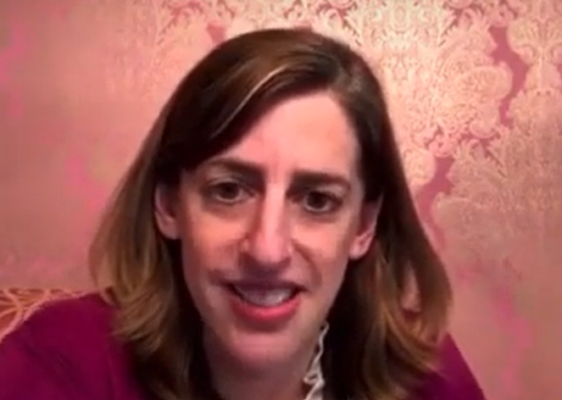Dartmouth Health recognized Psychologist Alisa Hurwitz with an Ongoing Commitment Social Justice Award for her role in medically transitioning youth with Autism Spectrum Disorder (ASD).
Hurwitz provides psychotherapeutic care related to pediatric and adolescent endocrinology in Dartmouth Health’s Trangender Health Program, with a focus on individuals on the autism spectrum. According to a Dartmouth Health article about the May 18 award ceremony, “she began to see many transgender, nonbinary, and gender-diverse patients and recognizes the need for therapists able to work with trans populations.”
Related: Trans or Die: The Ideological Blindness of a Dartmouth Health Endocrinologist
The high incidence of ASD among trans-identified youth would have come as no surprise to the authors of the 2011 and 2014 Dutch studies which serve as the foundation for the practice of moving children from puberty blockers to hormones. Those researchers screened out children with depression, anxiety, and especially autism because they recognized that gender confusion is a stage that children usually outgrow.
The researchers noted that “It can be complicated to disentangle whether the gender dysphoria evolves from a general feeling of being just ‘different’ or whether a true ‘core’ cross-identity exists in adolescents who suffer from an autistic spectrum disorder.”
The high rates of trans-identified ASD children wouldn’t surprise health policy experts in England, either. They shut down Tavistock, the world’s largest youth gender clinic after learning that most of the children receiving irreversible medical treatment had mental health disorders and a third had moderate to severe autism even though it occurred at 2% in the general population.
In an article in The Daily Mail, autism expert Dr. Sally Powis is quoted as saying that autistic teenagers who are searching for a reason why they don’t fit in could fixate on the idea they were born into the wrong body.
Powis said that teenage girls on the spectrum who bind their breasts might simply be trying to express the feeling that “I’m anxious about all this stuff happening to my body, and I don’t know how to handle it.”
Although England, Finland, Norway, and Sweden see the rate of children with ASD being medically transitioned as alarming evidence of dysfunction, Dartmouth Health celebrates it as a triumph of health equity. In a video that accompanied the award ceremony, Hurwitz proclaimed that “This isn’t just medical care, this isn’t just mental health care, this is serving a community that is marginalized and being actively attacked.”
Dartmouth Health’s practice of transitioning ASD youth raises the question as to whether they can understand the consequences and give informed consent to these irreversible medical treatments. It’s not even clear that Hurwitz herself understands the ramifications of gender medicine. Last year she asserted that puberty blockers are completely reversible and that opposite-sex hormones are mostly reversible.
But Marci Bowers, president of the World Professional Organization for Transgender Health, said children who take puberty blockers at Tanner Stage 2 (ages 9-11) and move on to opposite-sex hormones will never experience sexual satisfaction as adults. Jeremi Carswell, head of Boston Children’s Hospital’s gender clinic, said that children who start on puberty blockers at age 12 or 13 will be sterile. Puberty blockers also cause low bone density, which can lead to osteoporosis.
John Turco, MD, who heads Dartmouth Health’s Transgender Health program, said Dartmouth Health gives puberty blockers to children as young as 10. Turco received the Lifetime Achievement Award at the ceremony.
Watch my conversation last summer with Alisa Hurwitz about her work with autistic kids:
